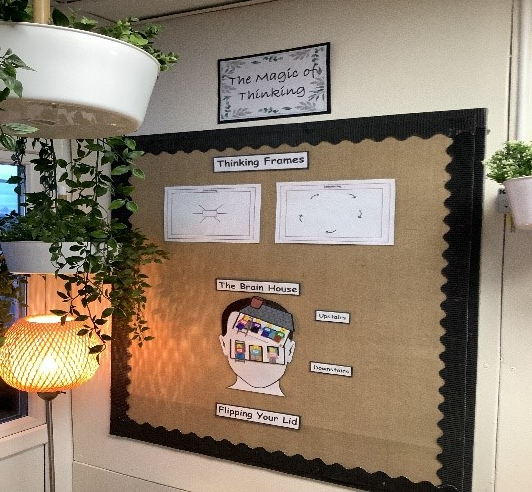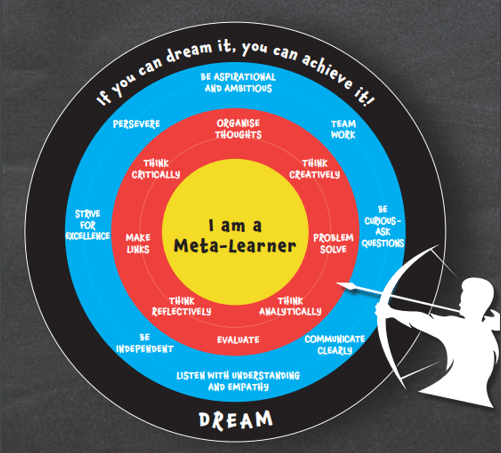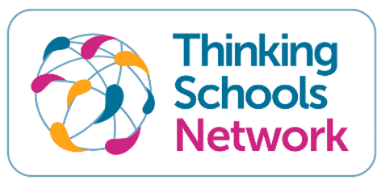In September 2021 we began our journey to becoming a Thinking School with support from Thinking Matters, University of Exeter and GM Murphy consultants.
Thinking School

What is a Thinking School?
A Thinking School takes an explicit, evidence informed, whole school approach to developing pupil thinking and their cognitive capability to:
- think in a creative, critical and reflective way
- plan, reason, solve problems and tackle complex ideas
- understand how they learn best and use this knowledge and the associated skills and techniques throughout a much more meaningful curriculum
- learn quickly and from their experiences
The Thinking School principles focus on three main areas…

- Self-regulation
- Cognition
- Metacognition
…and are founded in the very latest and most robust 'evidence-informed' approaches to teaching and learning, feedback, recording and marking (EEF research).
The late Professor Bob Burden, arguably the first educator to coin the phrase 'a Thinking School' back in 2006, had a definition:
‘an educational community in which all members share a common commitment to giving regular careful thought to everything that takes place. This will involve both students and staff learning how to think reflectively, critically and creatively, and to employing these skills and techniques in the co-construction of a meaningful curriculum and associated activities. Successful outcomes will be reflected in students across a wide range of abilities demonstrating independent and co-operative learning skills, high levels of achievement and both enjoyment and satisfaction in learning. Benefits will be shown in ways in which all members of the community interact with and show consideration for each other and in the positive psychological well-being of both students and staff.’
Why Do We Want To Become A Thinking School?

At St William’s Catholic Primary School, we aim to enable each and every child to be able to think skilfully and independently and to understand how they learn best. When pupils fully understand how they think and learn, they make greater progress; grow in resilience and become much more adaptable to changes and problems that they may encounter. They are also more equipped to make informed choices in life.
We recognise that we live in a rapidly changing digital world and at St William’s we want to enable our children to not just learn WHAT to think, but HOW to think by developing intellectual learning behaviours. As a school, we put a huge emphasis on ‘thinking’ in young people – ‘thinking’ is at the heart of our curriculum because our intent is to future proof our children and provide better life chances for all.
How Will We Achieve This Goal?
In order to achieve this goal, we have adopted a whole school approach in which all members of St William’s learning community are kept fully informed and involved in our Thinking School journey. We have a Drive Team which is made up of six members of staff leading this project throughout our school. Our team of dedicated staff receive regular CPD in order to be specially trained and able to introduce methods into the curriculum for teaching the skills of thinking and metacognition.
We recognise the importance of neuroscience and have explicitly taught our children about the brain and how it helps us to think, learn and self-regulate. Our School Council produced a video which they shared with their peers to help
explain how their brain works using the analogy of a ‘brain house’.

We have created a clear vision of the cognitive capabilities
and intelligent learning behaviours we want our pupils to develop in order to become meta-learners.


We are equipping our pupils with tools and strategies they can use to help them to organise their thinking/ideas. Thinking Frames are one such tool pupils utilise to scaffold thinking and learning with increasing confidence and skill.

